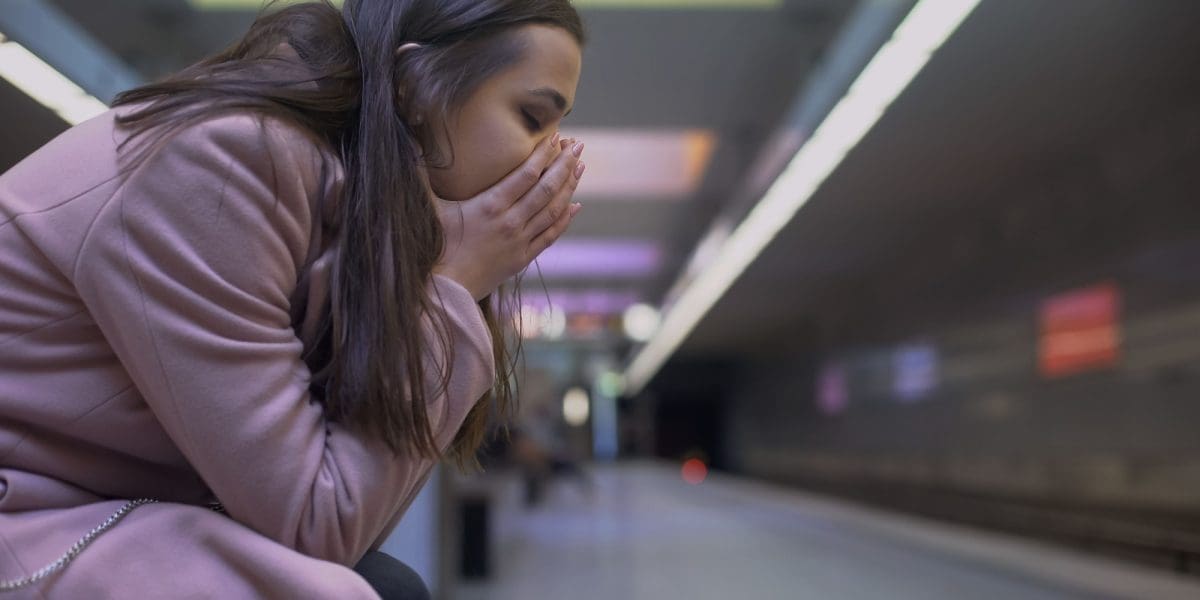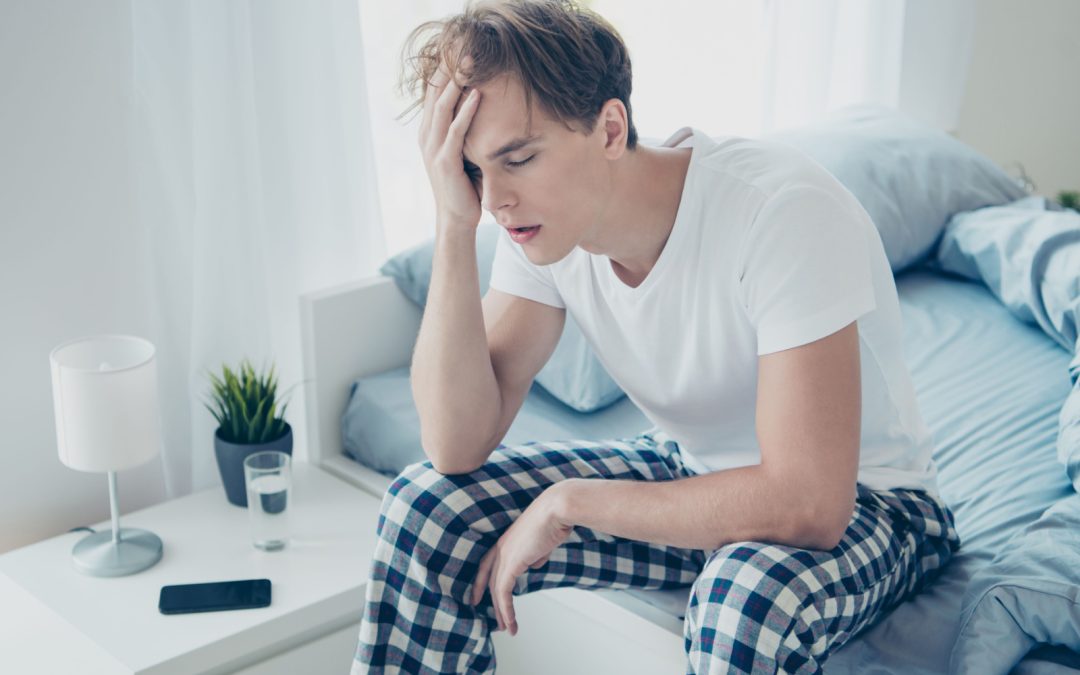Does alcohol help anxiety, or does it make it worse? If you have anxiety, there’s a good chance you’ve turned to alcohol as a way to help you relieve any uncomfortable symptoms. In fact, the practice self-medicating using mood-altering substances like alcohol is not uncommon. In fact, according to a study published in the Archives of General Psychiatry, 13% of the surveyed American adults admitted to using alcohol at least once in the past year to manage their emotions.
Below, you will learn how alcohol works in the brain as well as the answer to the question, “Does alcohol help anxiety?”
Alcohol and the Brain
Alcohol is known for reducing stress and making you feel more at ease. But does alcohol help anxiety? For a short time, yes. According to the National Institute on Alcohol Abuse and Alcoholism, alcohol is a central nervous system depressant that slows down brain functions and neural activity.
Drinking alcohol blocks the production of glutamate, an amino acid that also acts as an excitatory neurotransmitter in the central nervous system. As a result of this blockage, your brain functions start turning sluggish, and you begin feeling sociable and relaxed.
Additionally, alcohol boosts GABA activity by binding to a site on the receptor that is different from where GABA itself binds. This increase in GABA activity at specific receptors in the brain is responsible for the sedative effects of alcohol, such as drowsiness.
Furthermore, alcohol’s calming ability may lead to feelings of happiness that closely resemble the effects produced by anti-anxiety medications. However, alcohol makes for a very poor substitute for a prescription anti-anxiety medication.
First and foremost, alcohol is profoundly habit-forming. The more of it that you drink, the more if that you need to drink, especially if you engage in risky behaviors like binge drinking. Over time, many people with anxiety find themselves drinking more and more to get the same relaxing effects. For this reason, individuals with anxiety face a higher risk of developing alcoholism.
Self-medicating with alcohol can also worsen anxiety symptoms. By becoming reliant on alcohol, you become much more likely to experience uncomfortable situations that can trigger your anxiety. Moreover, using alcohol to treat anxiety can make your anxiety symptoms even worse when you’re sober, leading to even more reliance on drinking to cope. This is how co-occurring disorders develop, and they often require specialized treatment to address.
Alcohol and Anxiety

Many people with anxiety, especially a social anxiety disorder, turn to alcohol to soothe their nerves. In fact, according to the Anxiety & Depression Association of America, approximately 20% of individuals with a social anxiety disorder also have an alcohol dependence.
To illuminate how common alcohol use is among people with anxiety, the National Institute on Alcohol Abuse and Alcoholism found that more people are living with both an anxiety disorder and substance use disorder than those with only one or the other.
So, does alcohol help anxiety? Unfortunately, the answer is no. Instead, using alcohol as a way to cope with daily stressors and general anxiety can cause even more significant problems. In fact, there are instances where long-term alcohol can lead to worsening anxiety. For example, a night of heavy drinking can cause you to feel anxious the following day. This is a condition commonly referred to as “hangxiety.”
As a result, it’s important to know how to express or feel your emotions without using alcohol as a buffer.
Is “Hangxiety” a Real Thing?
“Hangxiety” is a common phrase that pops up when you search, “Does alcohol help anxiety?” But what does it mean? “Hangxiety” is a word that combines the terms “hangover” and “anxiety” and is when you feel panicky in addition to hungover. It’s commonly used to describe that awful feeling you get in the pit of your stomach after a period of heavy drinking.
“Hangxiety” occurs as a result of depleted levels of GABA. Reduced GABA amounts can cause memory loss from blacking out, sustained injuries from lack of coordination, and many other health risks. Not only does low GABA activity make you feel depressed, but it also leads to anxiety, trouble sleeping, mood disorders, and panic attacks.
Alcohol Withdrawal
As time goes on, you may find that you have to keep increasing the amount of alcohol you consume to feel the same effects as before. This is known as having built up a tolerance, which means your body can no longer operate properly without the substance. In this situation, alcohol leads to a heightened state of anxiety rather than decreasing stress as it once did.
If you’ve been relying on alcohol to help you cope with your anxiety and suddenly stop drinking, you can expect to start feeling withdrawal effects within hours of your last drink. Of course, the intensity of your symptoms depends on the severity of your alcohol use disorder (AUD).
Common alcohol withdrawal symptoms include:
- Body tremors
- Fever
- Sweating
- Nausea or vomiting
- Increased heart rate
- Insomnia
- Irritability
- Changes in appetite
- Confusion
- Hallucinations
- Alcohol cravings
- Seizures
- Delirium tremens (DTs)
However, it’s important to note that you should not attempt to quit drinking cold turkey or without proper medical supervision if you have AUD. For your own safety, you should consider checking into an accredited rehabilitation center like The Willough at Naples. Our team of medical professionals will work with you to create a plan help you quit drinking safely.
Start Your Recovery at The Willough at Naples

At The Willough at Naples, we know you didn’t mean for your drinking to become problematic. We also know how hard it can be to ask for help. But getting treatment doesn’t have to be scary; it can be a rewarding experience where you find the path to sobriety.
Now that you know that the answer to, “Does alcohol help anxiety?” is no, you can reach out to any of our highly qualified staff members for tips on how to quit drinking. Our sunny Florida location offers medical detox services as well as a dual diagnosis program for individuals with co-occurring disorders. The detox program at our center helps patients stay strong and healthy through the withdrawal process, while our dual diagnosis treatment teaches better coping skills. With this comprehensive treatment, we help people stay sober in the long term.
To learn more about how we can help you with an addiction or mental illness, reach out to us today. You can call 800-722-0100 or submit a confidential contact form online to connect with an admissions expert. They will happily answer questions like, “Does alcohol help anxiety?” and direct you through your possible next steps.
While alcohol itself may not directly cause anxiety disorders, its misuse can lead to the development or exacerbation of anxiety symptoms. Those with pre-existing anxiety may find their condition worsens with alcohol use.
Long-term alcohol use can lead to worsening anxiety. For instance, the experience of “hangxiety” after heavy drinking exemplifies how alcohol can induce anxiety-like symptoms.
Temporarily, alcohol can create feelings of relaxation and sociability due to its depressant effects on the central nervous system. However, it’s not a reliable or healthy method for managing anxiety.
Yes, alcohol can worsen anxiety. Over time, dependence on alcohol to relax can lead to an increased risk of developing alcoholism. Furthermore, reliance on alcohol for managing anxiety can amplify anxiety symptoms when sober, potentially leading to co-occurring disorders.
While alcohol initially reduces stress and makes one feel at ease, it’s only a short-term effect. In the long term, it does not effectively reduce anxiety and can actually exacerbate anxiety symptoms.
To manage anxiety after drinking, it’s important to reduce or stop alcohol consumption, practice healthy coping skills, and seek professional treatment if needed, especially for those with a co-occurring disorder.
Yes, “hangxiety” is a real phenomenon. It’s a colloquial term combining “hangover” and “anxiety,” describing the feelings of anxiety and panic experienced during a hangover, often due to depleted GABA levels in the brain.

